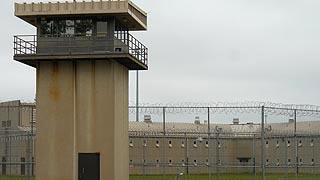Opinion: Bd. of Public Works Should Reject Controversial Pipeline Proposals

The Del-Mar Pipeline and Chesapeake Utilities Project Pipeline proposals for the Eastern Shore have been getting a great deal of attention lately — and rightly so.
Building fracked gas pipelines on the Eastern Shore would be detrimental to the communities involved. These two pipelines will only make low-income Eastern Shore communities even more reliant on outdated and harmful energy sources. They threaten 1,239 square feet of streams and more than 16,000 square feet of wetlands on the Eastern Shore. Gas pipelines can cause disastrous impacts on the environment and devastating explosions.
Citing climate, environmental, and social justice impacts, many groups oppose fracked gas pipeline expansion on the Eastern Shore, including Wicomico Environmental Trust, NAACP branches, Food & Water Watch, Chesapeake Climate Action Network, and Sierra Club.
If built, the Del-Mar pipeline would pump fracked gas from Delaware through Wicomico and Somerset counties to Virginia. The Chesapeake Utilities Project would carry the fracked gas from the pipeline to the University of Maryland Eastern Shore and Eastern Correctional Institution.
The Eastern Shore is suffering a great deal from climate change. Dorchester County, close to Somerset County, is considered the “canary in the coal mine” for our state. It is a harbinger of disasters we can expect if we do not eliminate fossil fuel emissions as quickly as possible; “sunny day flooding,” cemeteries falling into the sea, people having to elevate their houses to protect themselves from flooding, and more. None of these examples are unique to Dorchester County.
Fracked gas pipelines leak methane, a greenhouse gas over 80 times more potent than carbon dioxide at trapping heat over a 20-year period, which accelerates global warming. To avoid making the climate crisis any worse, we need to get our energy from clean, renewable resources like wind and solar and implementing electrification of buildings. We have less than 10 years before the climate damage to our planet is irreversible.
Fortunately, our state has passed legislation that can protect us to some extent. In 2019, Maryland passed the Clean Energy Jobs Act, which requires that our state be utilizing 50% renewable energy by 2030 and have a plan to implement 100% renewable energy by 2040. In addition, the state has passed several emissions standards that would help us reach our energy goals.
Failing to transition to 100% clean energy would result in an increase in flooding and other intrusive events such as hurricanes. The result from leaks of methane from a pipeline is only going to make the situation worse.
Since extreme weather would cause the pipes to shift and leak, the increase of methane into the atmosphere will further increase global warming, which will in turn increase disastrous weather conditions. Yet Governor Hogan plans to spend $6.5 million this year to “kickstart” a gas expansion across Maryland.
This is part of $30 million he is planning to spend on expanding gas infrastructure. At an Eastern Shore Chamber of Commerce virtual meeting recently, a spokesperson for Chesapeake Utilities Corporation even stated that the Del-Mar Pipeline and Chesapeake Utilities Project will lead to more pipelines being built.
We must eliminate our dependence on fossil fuels within 10 years, according to our own government’s Fourth National Climate Assessment. The Del-Mar Pipeline and Chesapeake Utilities Project are a 30-year commitment. In other words, expanding the use of fracked gas in Maryland would either make it impossible to end our dependence on fossil fuels in time or the pipelines would have to be abandoned just one third of the way through their expected service.
Clearly these pipelines are a bad investment. For example, fracking entities are already going bankrupt in other places in the country, with 250 oil and gas companies expected to go bankrupt next year. That’s a greater number of bankruptcies than the sector saw in the previous five years combined; and as these fracked gas companies go out of business, taxpayers could end up holding the bag for plugging the leaking gas wells they leave behind.
It is not hard to imagine that the fracking operation in Delaware that supplies the Del-Mar Pipeline will follow suit and this pipeline project will fall apart, leaving stranded assets for which Maryland ratepayers must compensate.
What is the solution? Instead of the pipeline, we should be looking at renewable energy. For years, Governor Hogan and the fossil fuel companies have called gas a “bridge fuel.” We do not need a bridge — renewable energy is affordable and abundant right now.
The Maryland’s Board of Public Works is scheduled to vote on Wednesday to determine whether these fracked gas pipelines will cut through our communities or be thrown on the scrap heap of history. Marylanders should contact the three members of this board, Governor Hogan, Comptroller Peter Franchot, and State Treasurer Nancy Kopp, and tell them to vote no on the Del-Mar and Chesapeake Utilities Project pipelines and that clean, renewable energy is a much better plan.
— SUSAN OLSEN




 Creative Commons Attribution
Creative Commons Attribution